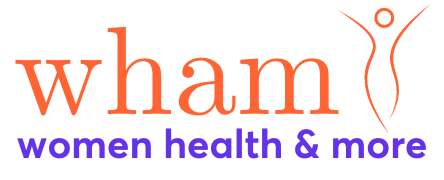
“Soft skills are a requisite to successfully face the constantly changing working scenarios, especially now during the COVID-19 pandemic…”
Over the past 10 years, the labor market has become more and more sectorial, creating the opportunity for every professional to specialize in increasingly specific areas. However, in 2020, and even more in the post COVID era, a curriculum vitae full of experience is no longer the only element that guarantees the hiring or professionalism of a person.
We are in front of what is defined as the Fourth Industrial Revolution, we have learned – the hard way ☹ – that processes can be efficiently managed at a distance and that people can be even more efficient when they are allowed to work at their own pace and from where they like and can.
So, what is it that we need to develop to successfully face the constantly changing working scenarios?
The World Economic Forum (International Organization for Public-Private Cooperation, based in Geneva) has recently made an attempt to answer such question and suggested that what we will need to focus on is soft skills.
These are complementary skills to the hard skills present in our curriculum, such as schooling and previous work experiences. However, they are so important that they can make a difference in any professional context.
Let’s explore the concept a little more in depth…
Often we are led to think that skills are what we studied at school or university or we learned by working in a company. This is true, but only partially.
In fact, it is very important to distinguish knowledge from technical skills from soft – or transversal – skills.
While knowledge refers to the notions that we have learned and understood during our studies or experiences, the technical-professional skills, also called hard skills, are those that allow us ‘technically’ to carry out our work. If you are a civil engineer, for example, you will know how to design and build a building.
Soft skills, though, are not knowledge and are not technical-professional skills and are linked not only to the sphere of know-how but also and above all to know-to-be.
Already in 1973 the American psychologist David McClelland published a study in which he showed that they were not a major QI nor better academic results to determine the success of a professional career but the transversal skills, or those habitual behaviors that the person was able to have in the most varied areas and also in unusual situations.
Subsequently, numerous other studies were carried out on this and various classifications were made, all referring to the attitude people display when reacting to certain contexts. We’re mainly talking about communication, self-motivation, perseverance, self-awareness, the ability to generate trust, knowing how to value others, empathy, critical thinking, adaptability.
These, and many more, according to the experts and judging from what we have recently witnessed, are the success factors that, going forward, cannot be missing in the development of any professional activity.
The challenge is that for soft skills to be such, are observable and measurable in terms of habitual behaviors and not of theoretical knowledge.
And this is the reason why traditional training often proves ineffective in this area. Only a daily focus, ad hoc learning and constant and long-lasting monitoring lead to habitual behavior.
In order for this development to be rewarding and sustainable, it must be personalized on the basis of the individual’s ‘ropes’ and their characterizing potential. We are individuals who stand out for their specific personal, relational and planning skills. For this reason, aiming for an ideal reference model is definitively much less effective than acting on our uniqueness and we have to come to terms with the idea that future is all about the liberation and enhancement of one’s nature and abilities rather than the standard ability to adapt to formats.
We will be exploring together what the ten indispensable soft skills suggested by the World Economic Forum are and how to better prepare for what’s ahead of us.
So, if you wish to know more check out problem solving – and some techniques to become better at it 😊

Alessandra is a PhD in Sociology. For many years she has worked for large multinationals covering senior operations and people management positions. She’s a visual coaching practitioner and is studying to become a certified professional coach.
Alessandra is passionate about Diversity and Inclusion which she also lectures on. She’s married and mum of three. In Malta since 2017, Alessandra also volunteers for MYSC, Malta Young Sailors Club.
Click here to check out Alessandra’s full bio as well as a list of all her Wham published articles




